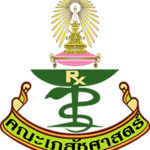Staying Safe in the Summer Heat

Health Tips from Chula Pharmacists: Staying Safe in the Summer Heat
As temperatures soar across the country, many people have likened the heat to "training for hell." Even healthy individuals struggle to stay outside for long periods, while those with chronic illnesses, young children, and the elderly are at heightened risk of heat-related illnesses. This week, Chula pharmacists offer practical advice on how to stay healthy during this intense hot season.
Common Heat-Related Conditions
Hot weather can lead to dehydration, heat exhaustion, and heatstroke. To reduce the risk:
Avoid being outdoors during the hottest times of the day (10:00 a.m. to 3:00 p.m.).
If going out is unavoidable, wear lightweight, breathable clothing such as cotton, and protect yourself with a hat, umbrella, or sunglasses.
Take breaks every 30 minutes if you must work outside, and use cooling aids like a fan or a cold towel on your neck or joints.
Hydration Tips
Drink 1–2 glasses of water every hour, even if you don’t feel thirsty.
Limit or avoid alcohol and caffeine, as they have a diuretic effect.
If you’re sweating a lot, plain water may not be enough—consider electrolyte-replacement drinks.
In the absence of sports drinks, oral rehydration salts (ORS), often used for diarrhea, can be an effective alternative.
Avoid sweet or carbonated drinks, as they can increase thirst.
How Much Water Do You Need?
While the general recommendation is 8–10 glasses (1,600–2,000 ml) per day, you may need an extra 0.5–1 liter if you’re sweating heavily, have a fever, or are ill with diarrhea.
To check for dehydration:
Look at your urine color—dark yellow may signal dehydration.
In children, signs include no tears while crying or a dry mouth.
But don’t overdo it—drinking more than 3–4 liters in a short time can lead to water intoxication, especially in individuals with conditions like heart or kidney disease. Water needs vary, so consult your doctor if unsure.
Medication Considerations
Some medications can affect fluid and mineral balance:
Diuretics (used for high blood pressure, heart or kidney disease) increase water and mineral loss, especially potassium, which is crucial for heart function.
Laxatives (e.g., senna) can also cause dehydration if they lead to frequent bowel movements.
On the other hand, steroids, NSAIDs, and some birth control pills can cause fluid retention, leading to swelling.
If you experience unexplained weight gain, swollen legs, or persistent indentations on your skin, seek advice from a doctor or pharmacist. Medication adjustments may be necessary.
While we can’t escape Thailand’s intense heat, we can adapt our behavior to stay healthy and comfortable. With the right habits and precautions, summer doesn’t have to be a health hazard.
Would you like this reformatted for a blog, poster, or social media post?
Assoc. Prof. Dr. Nattada Areepiam and Assoc. Prof. Dr. Bodin Tiwasuwan
Faculty of Pharmacy Chulalongkorn University
เราใช้คุกกี้เพื่อพัฒนาประสบการณ์การใช้งานเว็บไซต์ของคุณให้ดียิ่งขึ้น คุณสามารถจัดการความเป็นส่วนตัวของคุณได้เองโดยคลิกที่ ตั้งค่า
